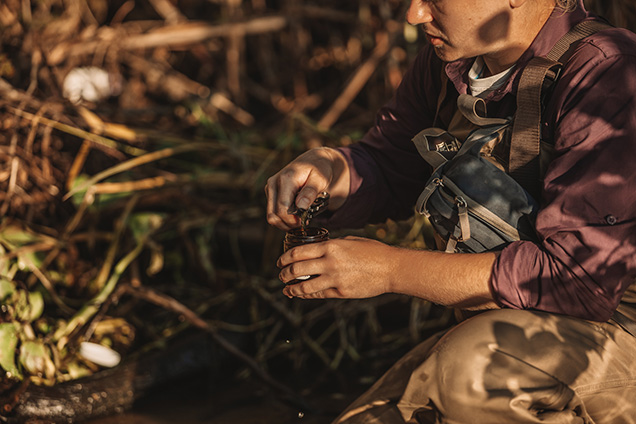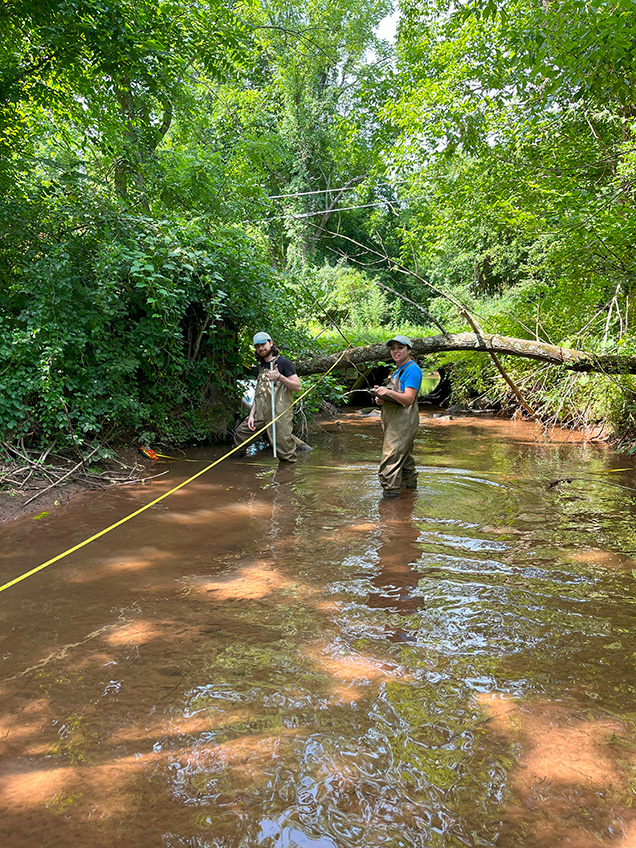Phycology Professional Services
The Phycology Section has the capacity to serve as a sample processing laboratory or as a partner in a collaborative project. We offer different algal analysis with a specialization in diatom taxonomy. We can process samples from start to finish, including digestion and slide mounting, to analysis of algal taxonomy. The Phycology Section also acquisitions all diatom materials and slides into the Academy’s Diatom Herbarium Diatom Herbarium | Research at The Academy of Natural Sciences of Drexel University (ansp.org) unless otherwise requested by the client or project needs. If you are interested in working with us or collaborating on a project, email Mariena Hurley mkh96@drexel.edu for more information.
Capabilities

- Field collection of periphyton and phytoplankton samples
- Deployment and collection of diatometers
- Coring of lake and wetland sediments
- Analysis of periphyton and phytoplankton samples; identification and enumeration
- Analysis of diatoms in sediment cores; environmental reconstructions
- Digital imaging of algae specimens; light microscope and SEM
- Description of new diatom taxa
- Multivariate analysis of species and environmental data
- Calculation and development of metrics and other water quality indicators
- Calibration of inference models for inferring environmental characteristics
- Water quality assessment based on algal data (e.g., nutrient issues)
Facilities

The Phycology Section has the facilities and equipment for laboratory analysis and most field situations. The section has a wide variety of field equipment for taking algal samples (water samplers, sediment coring equipment, etc.), a separate laboratory for preparing algal samples and making diatom slides, that includes a microwave apparatus for digesting multiple diatom samples at once, an extensive microscope laboratory for analysis for algal samples that includes six high quality research microscopes, with digital cameras for high quality imaging. We also have local access to scanning electron microscopes, and an extensive reference collection of taxonomic and ecological literature —both in the laboratory and in the Academy’s Diatom Herbarium.
The section developed and maintains several applications and databases, including the North American Diatom Ecological Database (NADED), which contains all of Phycology’s projects data (current and past), including count data, on over 10,000 samples.

